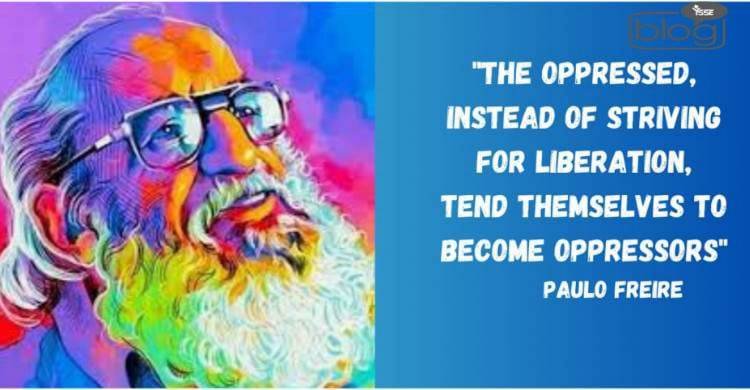One of the most important educators of the 20th century was Paulo Freire, especially in the area of critical pedagogy. Particularly in Latin America and other developing nations, his thoughts on education have had a huge influence on instructional methods all over the world. Paulo Freire’s life and work will be examined in this essay, with a particular emphasis on his educational philosophy and how it has influenced social justice movements.
Brazil’s Recife is where Paulo Freire was born in 1921. His early experiences with poverty and injustice had a significant influence on his later work as an educator because he was raised at a time of extreme social and economic disparity. Freire attended the University of Recife to study law after finishing his secondary education. He quickly, nonetheless, lost hope in the legal field and decided to go into education.
In Brazil, Freire started working with adult literacy programs in the 1950s, which is when he came up with his well-known “Pedagogy of the Oppressed” strategy. The importance of involving students in the learning process as active participants, as opposed to merely passive consumers of knowledge, is emphasized by this method.
As a result of their emphasis on rote memory and passive learning, traditional educational techniques, in Freire’s view, frequently serve to reinforce social injustices and power structures. On the contrary, he thought that education ought to be a tool for social change, enabling people to cultivate critical thinking abilities and question the status quo.
Globally and especially in Latin America, educators have embraced Freire’s educational philosophy, using it to advance social justice and provide a voice to oppressed groups. He has received recognition for his dedication to equipping students with the knowledge and skills necessary to make a difference in their local communities.
Freire spent his entire life participating in social justice movements and political activity in addition to his career in education. He participated in campaigns to advance democracy and social justice in Brazil as a member of the Brazilian Workers’ Party.
Paulo Freire endured numerous challenges during his life, both personally and professionally. His opposition to the military dictatorship that took over Brazil in 1964 was one of his toughest battles. As a part of the Brazilian Workers’ Party, Freire worked to advance social justice and democracy in that country. However, the regime targeted him because of his political views, and in 1964 he was taken into custody and put in prison.
Freire spent 16 years in exile outside of Brazil after his release from prison. He spent this time residing and working abroad, including in Chile and the US. Freire continued to write and teach while living outside of his native country to advance social justice and the empowerment of disadvantaged groups.
Freire also had to contend with criticism of his educational philosophy, in particular his “Pedagogy of the Oppressed.” His approach was criticized by others as being too radical and for endorsing a Marxist ideology. Freire remained steadfast in his belief that education can be used to empower people and effect social change.
Around the world, social justice and education movements are still influenced by Freire. His educational theories have been applied in several contexts to strengthen underprivileged groups and advance social change. He has received recognition for his dedication to empowering students and providing them with the resources they need to become change agents in their local communities.
Paulo Freire believed: “Education either functions as an instrument which is used to facilitate the integration of the younger generation into the logic of the present system and bring about conformity or it becomes the practice of freedom, how men and women deal critically and creatively with reality and discover how to participate in the transformation of their world.”
In conclusion, Paulo Freire, a pioneering educator, and philosopher, had a significant influence on teaching methods all over the world. His “Pedagogy of the Oppressed” methodology placed a strong emphasis on getting students involved as active learners rather than merely passive consumers of knowledge.
In many different contexts, this strategy has been used to strengthen underprivileged communities and advance social justice. In the realm of education, Freire is regarded as a towering figure because of his dedication to empowering students and fostering social change. His legacy continues to motivate educators and activists all over the world.
Read this blog and share. Then let us know your opinion……………………
To read more blogs #click here.
Writer
Sanzide Rahman Jidni
Intern, Content Writing Department
YSSE

